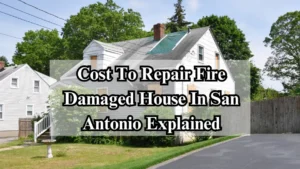Dreaming of wide-open spaces, bustling cities, or a charming coastal retreat? Texas real estate offers it all! Whether you’re a seasoned investor or a first-time homebuyer, this comprehensive guide equips you with the knowledge you need to navigate the exciting Texas market. We’ll explore financing options, delve into local regulations, and unpack the unique characteristics of diverse regions. From trendy urban condos to sprawling ranches, discover the perfect property to match your lifestyle and budget. Let’s unlock the door to your Texas dream!
Understanding the Texas Real Estate Market
The Texas real estate market has been booming in recent years, driven by a strong state economy, rapid population growth, and high demand across the state. Home prices and sales volumes have increased significantly, especially in major metro areas like Austin, Dallas, Houston and San Antonio.
Texas home prices are up over 15% year-over-year as of Q3 2022. The median home price in Texas reached $325,000, with Austin topping $575,000. Homes are selling rapidly at just 29 days on market. Inventory is extremely tight across the state, with just 1.6 months of supply. This competitive environment is fueling bidding wars and homes selling well above list price.
Job growth and corporate relocations have spurred population growth in Texas, increasing housing demand. Texas added over 470,000 residents in 2021 alone. Popular destinations like Austin, Dallas and Houston are seeing strong in-migration from other states.
Low taxes, affordable home prices and business-friendly policies also attract new residents and real estate investors to Texas. The lack of state income tax is a major draw. Strong economic fundamentals signal a healthy housing market into the foreseeable future.
Buyer competition is fierce in neighborhoods near downtowns, tech hubs and amenities. In Austin, popular ZIP codes include 78704 (South Lamar/South Congress), 78749 (Circle C Ranch) and 78701 (downtown). In Dallas, hot areas include 75287 (West Plano) and 75094 (Las Colinas). The Inner Loop, Galleria and Sugar Land are coveted areas in Houston.
Overall, the Texas real estate outlook remains very positive. High demand and tight inventory will keep home prices appreciating. Texas will continue attracting new residents, businesses and real estate investment.
Finding Your Dream Home in Texas
Purchasing your first home is an exciting milestone, but the process can feel overwhelming for first-time buyers. With proper preparation and guidance, you can make your homebuying journey in Texas a smooth one.
Tips for First-Time Homebuyers
- Get pre-approved for a mortgage. Work with a lender to get pre-approved before starting your search. This shows sellers you’re a serious buyer and gives you a price range for your search.
- Make a budget. Factor in your down payment, closing costs, property taxes, insurance, and other ownership expenses. Aim to keep housing costs below 30% of your gross monthly income.
- Be realistic about wants vs. needs. Make a wishlist of your ideal home, but focus on must-haves like location, size, and amenities. Compromise on nice-to-haves if needed.
- Explore loan programs. Look into first-time buyer programs like FHA loans that require lower down payments and have more flexible credit requirements.
- Line up inspections/repairs. Hire an inspector to examine the home’s structure and systems. Negotiate repairs with the seller or budget for fixes.
- Understand market conditions. Study sale prices in neighborhoods where you like to spot undervalued properties and make competitive offers. Track market trends.
Working with OffersMadeEasy
Partnering with OffersMadeEasy can streamline the buying process. Here are some of the key responsibilities:
- Helping you determine your must-have home features, ideal locations, price range, etc. We will use this to filter listings that match your criteria.
- Facilitating home tours and accompanying you to view properties.
- Guiding negotiations with sellers. We will strategize offers, make counteroffers, and counsel you on handling inspection issues.
- Managing contracts, paperwork, and deadlines throughout the transaction. We will ensure all terms are met.
- Referring you to lenders, inspectors, attorneys, and other professionals as needed. Our connections can smooth the process.
Navigating the Home Search and Buying Process
The typical home search process involves:
- Getting pre-approved for financing
- Identifying needs and wants and determining budget
- Researching neighborhoods and viewing potential homes
- Making an offer once the right home is found
- Entering escrow and completing inspections/appraisal
- Finalizing loan terms and securing financing
- Reviewing closing disclosure paperwork from the lender
- Signing documents and closing on the home
- Completing the final walkthrough and receiving keys!
With proper planning and a good agent guiding you, buying your first home in Texas can be an exciting journey filled with memorable milestones along the way.
Types of Properties in Texas
Texas offers various housing options to meet different needs and lifestyles. Here are some of the most common property types to consider:
Single-Family Homes
Single-family detached homes are the quintessential “American Dream” for many homebuyers. These stand-alone houses come in different sizes and designs, from modest starter homes to spacious custom estates. Key features of single-family properties are private yards, driveways and garages. Popular areas for these homes include the suburbs around major Texas cities.
Condos and Townhomes
For lower maintenance living, condominiums and townhomes present attractive options, especially in urban areas. Condos are apartment-style units that are part of a larger complex overseen by a homeowners association. Townhomes offer more privacy as they are attached side-by-side, but still have shared walls. Both offer amenities like pools/gyms and have maintenance/landscaping covered by HOA fees.
Luxury Properties and Gated Communities
At the high end of the market are luxury homes in exclusive neighborhoods and gated communities. Often located in desirable areas like golf resorts or lakefronts, these elegant properties have premium features like home theaters, wine cellars, and home automation. Gated communities provide added security and amenities available only to residents. Luxury development is booming in cities like Austin, Dallas, Houston, and San Antonio.
Texas real estate has options whether you’re looking for a cozy starter home, low-maintenance condo or a luxury estate in an exclusive area. Consider your lifestyle needs, budget, and location preferences to find the ideal property type for you.
Financing Your Texas Home Purchase
Financing a home purchase in Texas can seem daunting, but being prepared and understanding your options makes the process smoother. Here’s what you need to know about getting a mortgage, down payments, and closing costs in Texas:
Mortgage Options
There are several mortgage options for financing a home in Texas:
- Conventional Loans – These are mortgages that are not backed by the government. Typically you’ll need a good credit score and a down payment of at least 20%.
- FHA Loans – Insured by the Federal Housing Administration, these loans allow down payments as low as 3.5%. Credit score requirements are lower than conventional loans.
- VA Loans – For veterans and active military, no down payment is required. Credit score requirements are also more lenient.
- USDA Loans – For low to moderate-income buyers in rural areas, these loans offer favorable terms and 100% financing.
- Jumbo Loans – For luxury properties above conventional conforming loan limits, a jumbo loan is required. At least 20% down is needed.
Before applying for a mortgage, get pre-approved first. This shows sellers you’re serious and gives you leverage in negotiations.
Down Payment Options
The minimum down payment on most mortgages is 3-5%, but 20% down avoids private mortgage insurance (PMI). Here are some down payment assistance options for Texas homebuyers:
- Grants – Nonprofits like the Texas State Affordable Housing Corporation offer down payment grants for qualifying buyers.
- Seller Contributions – Some sellers offer to cover 3-6% of closing costs to incentivize the sale.
- Community Seconds – Local governments provide silent second loans to supplement down payments.
- Gift Funds – Asking family for gift funds towards the down payment is a common strategy. Lenders allow this with proper documentation.
Closing Costs and Fees
Beyond the down payment, closing costs and fees can total 2-5% of the purchase price. Here are the typical costs:
- Origination Fees – 1% of the loan amount goes to the lender to process the mortgage.
- Appraisal Fee – $400-600 to assess the property’s market value.
- Credit Report Fee – $50-100 per person to check credit.
- Title Insurance – 1% of sale price protects against claims against the title.
- Recording Fees – $100-200 to file the deed with the county.
- Home Inspection – $300-500 to evaluate the home’s condition.
- Property Taxes – Prorated for amount due at closing.
- HOA Fees – Prorated if the property has a homeowners association.
Shopping lenders and negotiating can help lower these costs. But come prepared for all the upfront fees at closing when buying in Texas.
Renting vs. Buying in Texas
Deciding between renting and buying a home in Texas can be a tough choice. Here’s an overview of the key pros and cons, costs, and rights and responsibilities to consider.
Pros and Cons of Renting and Owning
Renting Pros:
- More flexibility to move for jobs or life changes
- No down payment or closing costs
- Landlord responsible for maintenance and repairs
- No property taxes, insurance, HOA fees
Renting Cons:
- No equity earned or tax benefits
- Rent may increase over time
- Less ability to customize your space
- Subject to landlord rules and lease terms
Buying Pros:
- Build equity and potential appreciation over time
- Stability and freedom to customize your home
- Tax deductions for mortgage interest and property taxes
- Gain investment and forced savings
Buying Cons:
- Large down payment and closing costs required
- Responsible for all maintenance and repairs
- Difficulty moving quickly if needed
- Subject to market fluctuations in home values
Cost Comparison of Renting vs. Buying
When comparing the monthly costs of renting vs. buying, consider:
Renting:
- Rent payment
- Renter’s insurance
- Utilities if not included
Buying:
- Mortgage payment
- Property taxes
- Homeowners insurance
- HOA fees if applicable
- Utilities
- Maintenance and repairs
Generally, the monthly costs of owning tend to be higher than renting initially. However, over time buyers can build equity while renters pay down their landlord’s mortgage.
Use a rent vs. buy calculator to run the numbers for your situation, considering home prices, interest rates, tax benefits, and more. Buying can make sense financially if you plan to stay in the home long enough to recoup closing costs and build equity.
Tenant Rights and Responsibilities
As a renter in Texas, you have certain rights and responsibilities:
Renter Rights:
- Safe and habitable living conditions
- Privacy and access as outlined in the lease
- Timely repairs for issues affecting habitability
- Written notice before entry by landlord
- Security deposit refund within 30 days after move-out
Renter Responsibilities:
- Pay rent on time
- Keep the unit clean and undamaged
- Properly dispose of garbage
- Abide by rules in the lease
- Provide proper notice before moving out
Knowing the laws and your lease terms as a Texas renter can help ensure fair treatment by landlords. Consider working with a local tenants’ rights group if you have disputes.
Selling Your Texas Home
Selling a home in Texas can seem daunting, but with proper preparation and the right real estate agent by your side, it can be a smooth process. Here are some tips for making the most of selling your Texas property:
Preparing Your Home for Sale
First impressions matter. Before listing your home, make small repairs and cosmetic improvements to increase its curb appeal and perceived value. Declutter and clean every room, tidy up the yard, paint faded walls, update fixtures and finishes, and stage your home to highlight its best features and space. Hire a home inspector to identify any major issues that should be addressed.
Pricing Strategy and Negotiation
Work with your real estate agent to determine a competitive listing price based on comparable sales and current market data. Price it correctly from the start to generate buyer interest and potentially spark a bidding war. Be prepared to negotiate – have a target sales price in mind, but build in room to come down while still netting your goal amount. Counteroffers are common, so negotiate reasonably and know when to compromise.
Working with a Listing Agent
Your agent will handle photography, marketing, open houses, negotiations, paperwork, and more. Look for an experienced agent familiar with your local market. They can provide objective insight on pricing, make connections with buyers, and ensure all legal requirements are met. The right agent will maximize your home’s visibility and sale price.
Marketing Your Property
Your agent will market the listing through the MLS, online platforms like Zillow and Realtor.com, social media, yard signs, open houses, and networking. You can request premium promotions to increase exposure. Staging, professional photos, and videography are worthwhile investments to showcase your property online. Agents have access to buyer leads and can directly market to potential purchasers.
Investing in Texas Real Estate
Investing in real estate can be a great way to build wealth and generate passive income in Texas. The state offers many opportunities for real estate investors, from single-family rentals to multi-unit apartment buildings. Here are some things to consider when investing in Texas real estate:
Types of Investment Properties
- Rental Properties – Single-family homes, condos, and townhouses make good rental properties in Texas, especially in cities with major employers and universities. Investors can earn monthly cash flow from rent payments.
- Fix and Flip – Buying distressed or outdated properties, renovating them, and reselling at a profit is a popular flip strategy. Texas has many affordable properties suitable for fix and flips.
- Wholesaling – This involves putting a property under contract and then assigning that contract to an end buyer for a fee. It requires little upfront capital.
- Commercial Properties – Warehouses, small office buildings, and retail space can be leased out to business tenants. They offer higher returns but also higher risk.
- Raw Land – Undeveloped land can appreciate over time and be sold for more than its purchase price. However, it generates no immediate income.
Real Estate Investment Strategies
- Research potential neighborhoods, employment growth, and market trends to identify appreciating markets with strong rental demand.
- Run the numbers to analyze deals and ensure the profits outweigh the costs—factor in the purchase price, renovations, taxes, insurance, financing, maintenance, etc.
- Determine the optimal financing strategy. Investors may use all cash, traditional mortgages, hard money loans, or private lending.
- Build a diversified portfolio across property types, locations, and risk levels. Don’t put all the money into one deal.
- Use property managers to handle tenant screening, maintenance, and rent collection for passive income.
Legal and Tax Considerations
- Follow federal and Texas state laws regarding landlord-tenant relations, property disclosures, evictions, etc.
- Depreciate rental properties on taxes and utilize 1031 exchanges to defer capital gains taxes when selling and reinvesting proceeds.
- Track income, expenses, improvements, and mileage for investment activities. Keep detailed records for deductions.
- Consider LLC ownership structures to limit personal liability. Consult a tax professional about the implications.
- Adhere to federal and state fair housing laws when screening tenants. Discrimination is illegal.
Relocating to Texas
Texas is a popular destination for people relocating from other states, offering job opportunities, affordable housing, and a favorable climate. Here’s an overview of key factors to consider when moving to Texas:
Popular Cities and Suburbs
The major metro areas that attract the most new residents are Dallas-Fort Worth, Houston, San Antonio, and Austin. Within these regions, some of the most popular suburbs include:
- Dallas – Plano, Frisco, McKinney, Allen, Richardson
- Fort Worth – Arlington, Mansfield, Grapevine, Southlake
- Houston – Sugar Land, Pearland, League City, The Woodlands
- San Antonio – New Braunfels, Schertz, Cibolo, Helotes
- Austin – Round Rock, Cedar Park, Pflugerville, Kyle
These suburbs offer great schools, amenities, new construction, and access to urban job centers.
Cost of Living Comparison
Texas has one of the lowest costs of living in the nation. For example, housing costs in Dallas or Houston are about 25% lower than in major coastal cities like New York or San Francisco. Groceries, utilities, transportation, and other living expenses are generally 10-20% cheaper in Texas than the national average.
With no state income tax and relatively low property taxes, Texas residents get to keep more of their hard-earned money. This extra savings makes it easier to afford a high quality of life.
Resources for Newcomers
There are many great resources to help newcomers get settled in Texas:
- New resident guides – Most cities offer guides with information on schools, neighborhoods, utilities, driver’s licenses, and more.
- Relocation services – Companies like Move.org provide advice on moving, address change checklists, and tools to compare the cost of living.
- Meetup groups – Browse Meetup.com for groups joining activities and meeting new people.
- City events – Community calendars list festivals, markets, and local happenings to connect with your new hometown.
- Visitor centers – These offer personal advice, city guides, and insider tips on things to do.
With proper research and planning, the relocation process to Texas can be smooth and stress-free. The state offers a strong job market, affordable lifestyle, and communities that welcome new neighbors.
Texas Real Estate Laws and Regulations
Understanding the legal landscape is crucial for anyone buying, selling, or investing in real estate in Texas. Here’s an overview of some key laws and regulations:
Fair Housing Laws
The federal Fair Housing Act and Texas Fair Housing Act prohibit discrimination in housing based on race, color, national origin, religion, sex, familial status, and disability. Housing providers cannot refuse to rent or sell, charge higher fees, or limit access to housing facilities and services based on these protected characteristics.
The acts cover most housing, including rentals, sales, mortgage lending and homeowner’s insurance. Providers must make reasonable accommodations and allow service animals for those with disabilities. It’s illegal to harass tenants or homebuyers based on protected status. Victims can file complaints with HUD or the Texas Workforce Commission.
Disclosure Requirements
Certain disclosures must be made during real estate transactions in Texas. Sellers must complete a Seller’s Disclosure Notice detailing the condition of the property. Known defects like previous flooding, foundation issues, or termite damage must be disclosed.
The Property Condition Addendum requires sellers to disclose environmental hazards like asbestos, radon gas, lead-based paint, and more. Buyers have the right to terminate based on information in these disclosures.
Buyer and Seller Rights
Texas uses primarily “as-is” home sales, but buyers still have protections. Sellers must disclose major defects they are aware of, and buyers can conduct inspections and negotiate repairs or price reductions.
Buyers have the option fee if serious issues are found. The Texas Deceptive Trade Practices Act prohibits certain false, misleading or deceptive acts around real estate sales.
Sellers have rights including requiring earnest money, rejecting contingencies and setting the closing date. But they can’t back out once under contract barring breach by the buyer.
Property Taxes and Exemptions
Homeowners pay property taxes to local taxing entities like counties, cities, school districts and special districts. Texas has no state property tax. Tax assessors determine a property’s taxable value. Key exemptions like the homestead exemption can reduce taxable values.
The over-65 and disabled exemptions offer savings too. Homeowners protest valuations they believe are too high. Texas has no tax rate increase caps, but local voters must approve new bonds and tax ratification elections. Know the process to lower your property tax burden.
Real Estate Market Trends and Forecasts
The Texas real estate market is constantly evolving, with new hotspots emerging and economic factors influencing market conditions. Here are some of the key trends and predictions for the future of real estate in Texas:
Emerging Neighborhoods and Hotspots
Several neighborhoods in Texas are gaining popularity and seeing home values rise quickly. Areas like East Austin, Bishop Arts District in Dallas, and Midtown Houston are becoming trendy places to live. Other suburban areas like Frisco, McKinney, and Round Rock near Austin are also hotspots for their family-friendly appeal and quality schools. The Northside neighborhood in San Antonio is an up-and-coming area near the Pearl District.
Southlake and Prosper north of Dallas are desirable for their small-town feel but proximity to jobs in Dallas-Fort Worth. The suburbs of Katy, Sugar Land, and Cypress outside Houston are booming thanks to the energy sector and their amenity-rich master-planned communities.
Economic Factors Impacting the Market
Texas has benefited from a strong state economy, job growth, and domestic migration patterns. This has led to rising demand and low housing supply, pushing home prices and values up. Oil prices heavily influence the Houston housing market, while the tech sector drives Austin. Overall, Texas has experienced rapid population growth, keeping demand high for homes.
However, factors like rising mortgage rates and inflation could cool demand down the line. Any volatility in the energy industry or tech sector could also impact local markets. High property taxes in Texas also discourage first-time homebuyers already struggling with home affordability issues. Overall, economic factors point to continued price and rent increases, but likely at a more moderate pace.
Predictions for the Texas Housing Market
Looking ahead, Texas is expected to continue seeing strong demand from buyers relocating from more expensive states. The diverse job market and business-friendly policies will also attract residents. While price growth will likely slow due to inflation and rising rates, a housing shortage and population growth should prevent major declines.
Overall, Texas real estate is projected to remain strong compared to many parts of the country. The dynamic economy and popularity as a relocation destination will drive future growth. Areas with more affordable housing, amenities, and access to jobs will thrive. Both buyers and investors should see healthy demand ahead, though costs may rise more moderately.










